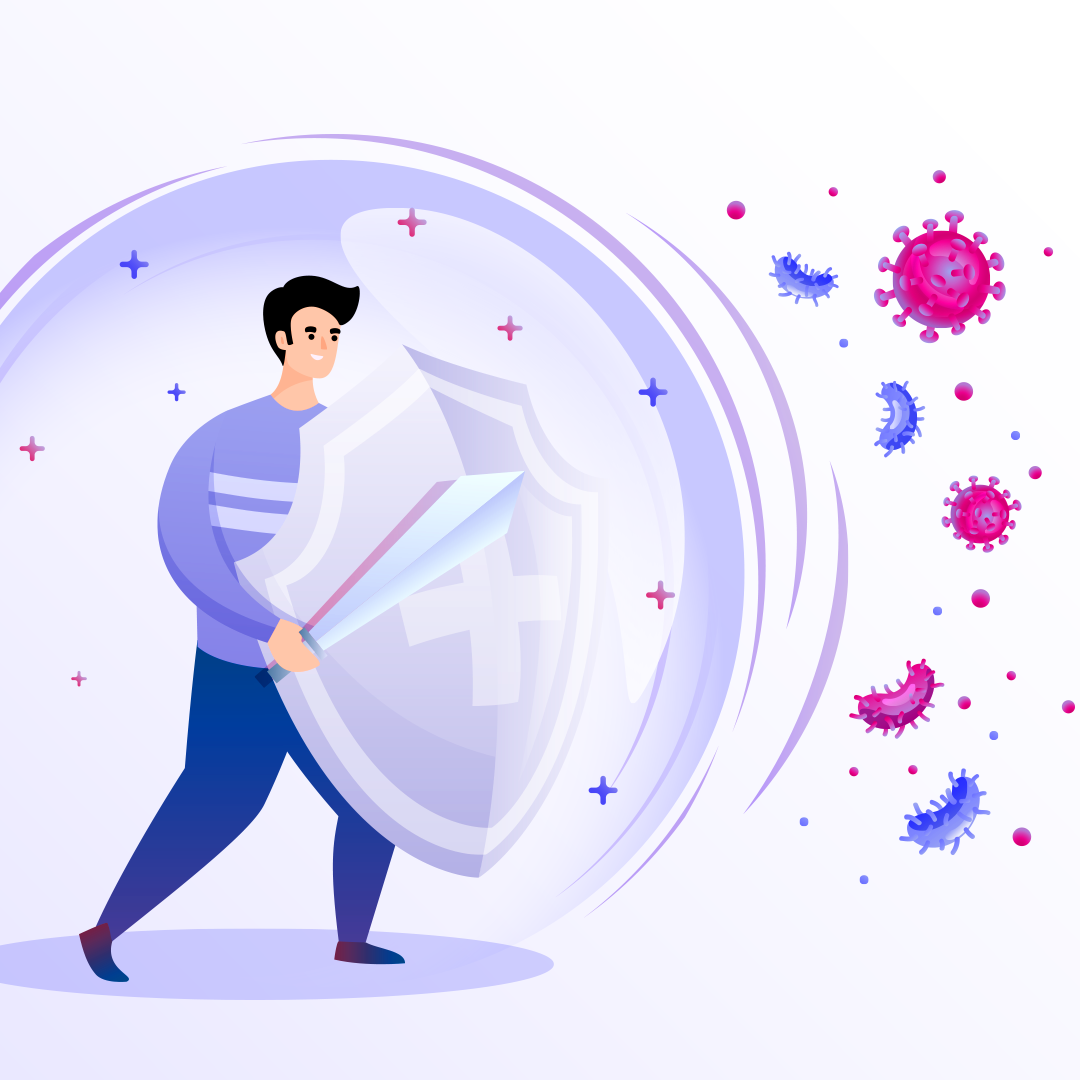Typhoid Fever and Monsoon: Safe Practices to Avoid Contamination

The monsoon season, with its rhythmic rains and lush greenery, brings much-needed relief from the excruciating heat. However, beneath the beauty of the monsoon lies its darker side – an increased risk of waterborne diseases. The relentless downpours and widespread flooding can create the perfect medium for infections to spread.
Among these, typhoid fever, which thrives in contaminated water and unsanitary conditions, stands out as a serious concern. Understanding what typhoid fever is and taking preventive steps to avoid infection is imperative to safeguard your family from this serious disease.
Heightened Typhoid Fever Risk in Monsoon Season
Typhoid fever is common during the monsoon season due to the disintegration of sanitation systems and the spike in unsanitary circumstances. Flooding and waterlogging frequently result in sewage containing Salmonella typhi contaminating food supply and drinking water.
Symptoms of typhoid fever typically include prolonged high fever, fatigue, headache, abdominal pain, and sometimes a rash known as “typhoid fever rash.” It can lead to severe health complications if left untreated.
Safe Food and Water Practices
Practising good hygiene and ensuring the safety of your food and water are essential steps to prevent typhoid fever. Here are some key practices that you can follow:
1. Boil drinking water
It is better to boil your water before drinking or use a reliable water purifier to remove any bacterial content. Try to avoid consuming tap water or water from unreliable sources during the monsoon season.
2. Avoid raw and street food
There is a higher chance of contamination in street food, especially during the monsoon season, so it is best to avoid it during this time. Avoid consuming raw fruits and vegetables as there is a chance that they may been washed in contaminated water. Stick to freshly cooked meals and peel your fruits by yourself.
3. Store food adequately
Make sure that all your food is stored in clean and dry containers and refrigerated promptly to eliminate bacterial growth. Avoid eating food that has been left out for a long time.
4. Practice hand hygiene
It is imperative to maintain proper hand hygiene throughout the day. Make sure you wash your hands with soap, especially before eating or preparing food or after using the bathroom to avoid the transmission of typhoid fever.
Additional Preventive Measures
Here are some of the best and most practical measures you can take to safeguard yourself and your family from typhoid fever:
1. Vaccination
Vaccination is the best and the most effective way to lower the risk of contracting typhoid fever. You can consult your healthcare provider about getting vaccinated before the onset of the monsoon season.
2. Get prompt treatment
If you are experiencing symptoms of typhoid fever, seek medical help immediately. Early diagnosis and typhoid fever medications can go a long way to reduce the severity of the illness.
3. Avoid visiting contamination-prone areas
It is better to avoid areas that are prone to flooding and poor sanitation during the monsoon season. Bacterial growth is heightened in such areas, which can lead to typhoid fever.
4. Spread awareness
Understanding what causes typhoid fever and how it is transmitted can help you take proactive steps to prevent infection. It is imperative to spread awareness about the same to your family and friends to promote collective well-being.
Conclusion
Typhoid fever is considered to be a serious illness but can be preventable if you take precautions and get prompt treatment. You can significantly lower your chances of getting infected by typhoid fever by being aware of the causes of typhoid fever and adopting safe food and water habits. Remember that maintaining proper hygiene and receiving vaccinations are critical preventive measures against the disease.
If you need to find the best doctor for your diagnosis, Bharosa.life can do wonders for you. You can find honest feedback from real-time patients and receive the healthcare services you need.
Contact us to know more!
